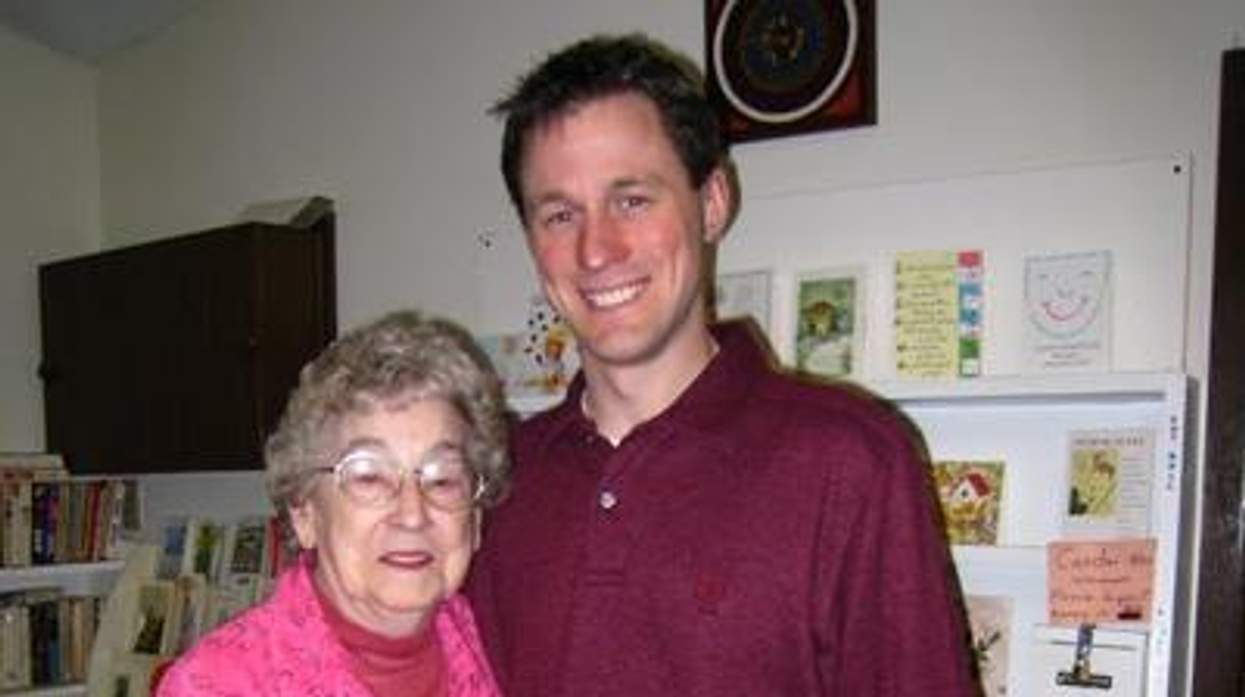Today, Minnesota will become the 12th state (plus Washington, D.C.) to enact marriage equality as the governor signs the new law. The Senate's approval on Monday places Minnesota in the "early adopter" stage of what is clearly momentum for marriage equality across the country.
Yes, there are others that paved the way (Massachusetts, Connecticut, and New Hampshire). There were setbacks (California). And there were surprises (Iowa).
But Minnesota is special. At least to me.
First of all, Minnesota is the first state to defeat an antigay constitutional amendment and in a matter of months, turn that pro-LGBT energy into the freedom to marry for all in the state. Defeating a marriage amendment is rare. Arizona did it in 2006, only to have a different version of the amendment pass in 2008. But Minnesota actually galvanized voters against the divisive measure, soundly defeating it with a cross-section of the state: rural, urban, religious, Republican, Democrat, old, young.
I was born and raised in Minnesota, moving to New York to work for GLAAD in 2011, just as the constitutional amendment was being considered in the state legislature. While I was far away, I stayed strongly connected to Minnesota through my family and friends. Plus, through my work at GLAAD, I was able to help advance the cause of marriage equality.
After the amendment passed the legislature, the true Minnesota spirit emerged. People began immediately talking to their friends, neighbors, and loved ones about why the amendment hurt real people and real families. Unlike in other campaigns, Minnesota had the luxury of 14 months before the vote to discuss the issue around dinner tables, in church, in parking lots, and among friends. This time allowed for real, deep, and engaging conversations that could truly change hearts and minds.
I engaged in these same conversations with friends and family. I recall talking to my grandmother about the amendment. I had no doubt that my grandmother loved and supported me, but she was very uncomfortable about the whole "gay issue." While she had come to accept my partner, I know she always (secretly) wished that I could find the right girl. In true Minnesotan fashion, it was preferable not to talk about difficult topics. But I knew this was important, and so did she. She also had come to know I was the same grandson that she knew and loved from the time I was born.
I told my grandmother how important it was to me that she vote no. She swallowed hard and said, "OK." I then asked something even harder of her. I asked her to talk to her friends about voting no. That was more difficult, because it meant going outside of her comfort zone to engage in conversation with people who may not react nicely. She said she would try, and I took her at her word.
Months later, my grandmother shared with me that she overheard other residents at her care facility speaking about the amendment. They were saying that the amendment was needed to protect them from those "evil homosexuals." And my grandmother spoke up. She spoke up! When I asked what she said, she responded, "Well, something about having to treat others the way you want to be treated or something." It wasn't a passionate speech, but I was incredibly proud of her that day.
Sadly, my grandmother passed away before Election Day and wasn't able to cast a vote against the constitutional amendment. But I think that conversations like the one I had with my grandmother and the one she had with her fellow residents led to this moment when marriage equality could easily pass the legislature with wide public support. Those conversations planted seeds that would grow unto the acceptance that all people deserve to pledge their love and commitment to the person they love.
When Governor Dayton signs the bill, as he has pledged, what will change for Minnesota? Besides the weddings of Minnesota couples who have been together for years, waiting for this time? Besides Lutheran, Episcopal, United Church of Christ, Reformed Jewish, Unitarian, and other faith communities that will offer marriages for all their members? Besides the fact that Minnesota proved itself, in its quiet, commonsense manner, to be on the right side of history?
I don't think much else will change. People will still work hard to provide for their families and communities. Neighbors will still talk about the cold weather, the Twins, and the Vikings. Thousands will still flock to the Minnesota State Fair to see beauty queens carved in butter. And our sense of community will continue to grow, knowing that the Minnesota community includes all loving couples and families.
ROSS MURRAY is the director of news and faith initiatives for GLAAD.















Charlie Kirk DID say stoning gay people was the 'perfect law' — and these other heinous quotes
These are some of his worst comments about LGBTQ+ people made by Charlie Kirk.